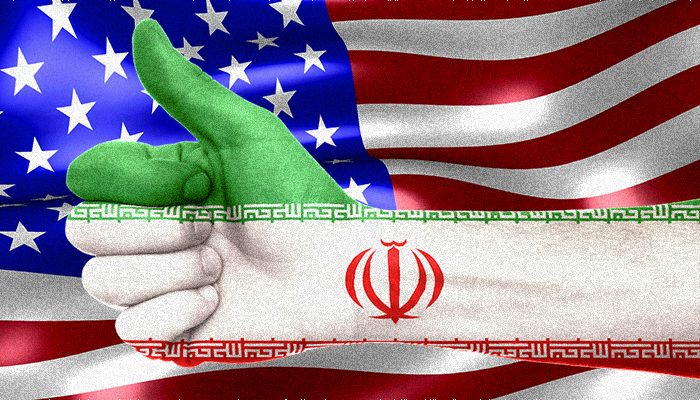
While the question may seem strange, even provocative, it is time to start asking Hollywood to think about the prospect of an Iranian-American buddy film. Back in 1988, Arnold Schwarzenegger—the future Govenator of the U.S. state of California—starred with Saturday Night Live veteran Jim Belushi in the crime-thriller Red Heat. IMDB describes the plot as such: ‘A tough Russian policeman is forced to partner up with a cocky Chicago police detective when he is sent to Chicago to apprehend a Georgian drug lord who killed his partner and fled the country’. Certainly the reviews of the film were less than stellar, yet the fact that a major motion picture paired up an agent of the Soviet state with an American cop in an effort to combat a combined threat to both their nations was a major milestone in the evolution of 1980s geopolitical cinema. By linking the interests of the USSR and the USA., Red Heat provided a bold contrast to Rambo III, Little Nikita, The Living Daylights, and other films of second-half of the 1980s, cinematically reflecting the budding international ‘bromance’ between the stridently anti-communist Ronald Reagan and the Soviet reformer Mikhail Gorbachev. In its own rather curious way, Red Heat also represented a prescient harbinger of post-1991 Russophobic Hollywood cinema in that it dealt with the unleashing of the dark underbelly of the Eurasian mafia on the West (a theme that would be repeated ad nauseam through the 1990s and beyond in films as diverse as Little Odessa [1994], Training Day [2001], and The Dark Knight Rises [2012]). In their collaborative efforts to bring to justice a home-grown Soviet threat, Red Heat marked a major turn in pop-culture’s collective assessment of the Soviet Union. Given the tectonic shift in the West’s orientation towards the Islamic Republic, is it not time for a similar treatment from Hollywood vis-à-vis Iran?
Admittedly, there are significant differences in the nature of the U.S.-Iranian relationship when compared to that of the America and the USSR back in the late 1980s. Unlike Reagan and Gorbachev, Barack Obama is not buddying up to either the Supreme Leader of Iran or its president, Hassan Rouhani, nor are there any overtures of this nature emanating from the Sa’adabad Complex. However, Washington and Tehran are increasingly finding themselves to be (often uncomfortable) bedfellows on the same side of many issues in the so-called ‘Greater Middle East’, from countering the spread of Daesh/ISIL to promoting increased economic ties in the Persian Gulf to stabilizing Afghanistan. With the large and influential Persian community in the United States and a younger generation of pro-American Iranians moving into their late 20s and early 30s, the stage is set for a transformation of the ‘enemy image’ of Iran akin to what occurred with the Soviets at the end of the Cold War—that is if Hollywood gets on board (a pretty big ‘if’). Certainly, a large number of structural hurdles hamper any such trend in this direction, not least of which is Americans’ pervasive distrust of ‘Middle Easterners’ rooted in hoary Orientalist attitudes toward Muslims. Sadly, these prejudices have been on dramatic display in the current election cycle wherein the presumptive Republican Party nominee, Donald Trump, has repeatedly called for a ‘ban’ on Muslim immigrants (a talking point that he has doubled-down on since the tragic mass-shooting at the Pulse nightclub in Orlando, Florida, in mid-June).
Yet, there is a possibility for challenging the West’s dominant IR narrative and reworking U.S.’s geopolitical imaginary of Iran via popular culture, assuming there is will on the part of cultural producers. Following in the footsteps of Whiskey Tango Foxtrot, with its well-developed relationship between a U.S. war journalist and her Afghan fixer, it is possible to move to the next stage, i.e., a U.S.-Iranian buddy film set in the Middle East. The possible plotlines are limitless, but I for one can imagine a narrative wherein an erudite, Western-educated, and religiously-observant member of the Revolutionary Guards partners up with a foul-mouthed, atheist FBI agent from Brooklyn to track down a missing shipment of enhanced uranium (thus contextualizing the recent Iranian nuclear deal and the tentative détente between the two countries).
Originally intended for delivery to the Russian Federation but diverted by a corrupt FSB agent to a wild-eyed ISIL terrorist in southern Lebanon, the missing uranium is the conceit that brings together these two ‘buddies’ so they can save Tel Aviv from a drone-delivered ‘dirty bomb’ attack. Of course, our heroes spend half the film arguing about the superiority of their respective systems, stereotyping of each other’s cultures, and debating about Israel. However, they do bond over food, seeking out the best falafel cafés on their trek from Muscat to Jeddah to Damascus, thus adding a bit of mirth to the otherwise serious subject matter. Sprinkle in a bit star power (I’m thinking a tanned and bearded Eric Bana against a clean-shaven Christian Bale reprising his American Hustle accent), work in some sweeping shots of Dubai, Mecca, and Jerusalem, and make a couple of hackneyed references to Moscow’s complicity in ‘weaponizing’ the migrant crisis in Europe and you’ve got yourself a summer 2017 blockbuster. Stranger things have happened.
Further Reading on E-International Relations
- The Future of Popular Geopolitics: Mega-Shark Cinematic Diplomacy
- Opinion – The Iranian Regime’s Future Post Soleimani
- Opinion – Is Standing by the Minsk II Agreement Worth It?
- Russia’s Invasion of Ukraine and the Return of Civilisational Politics: An American and French Tale
- Opinion – Could the Sino-Iranian Agreement Weaken US Hegemony?
- Opinion – The Iranian Regime’s Continuing Oppression Amid Growing Protests